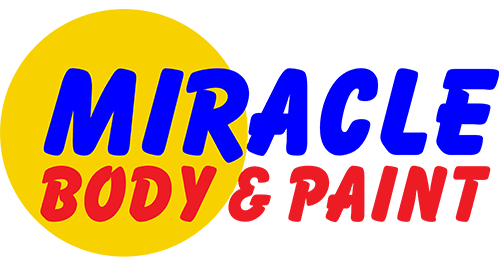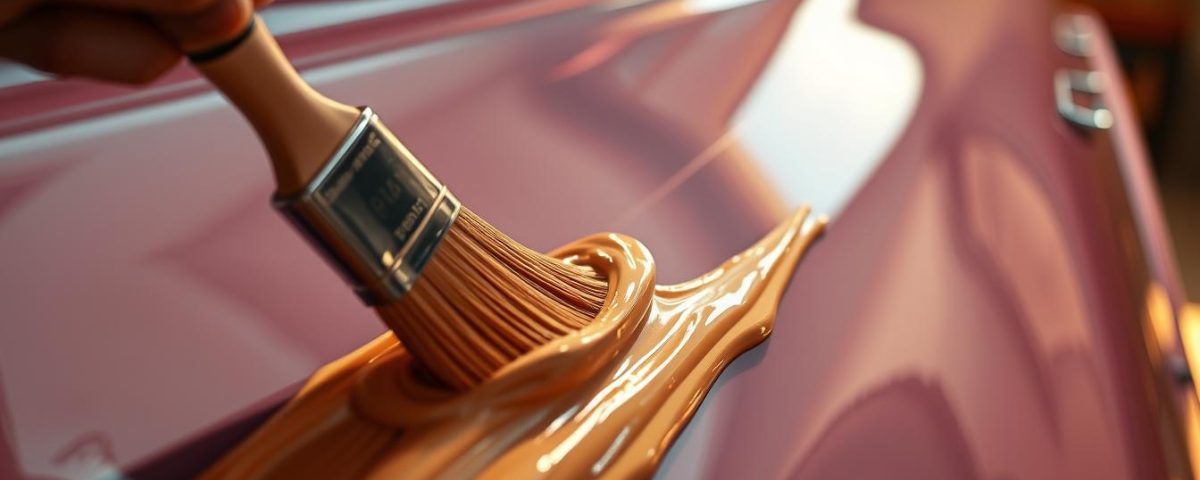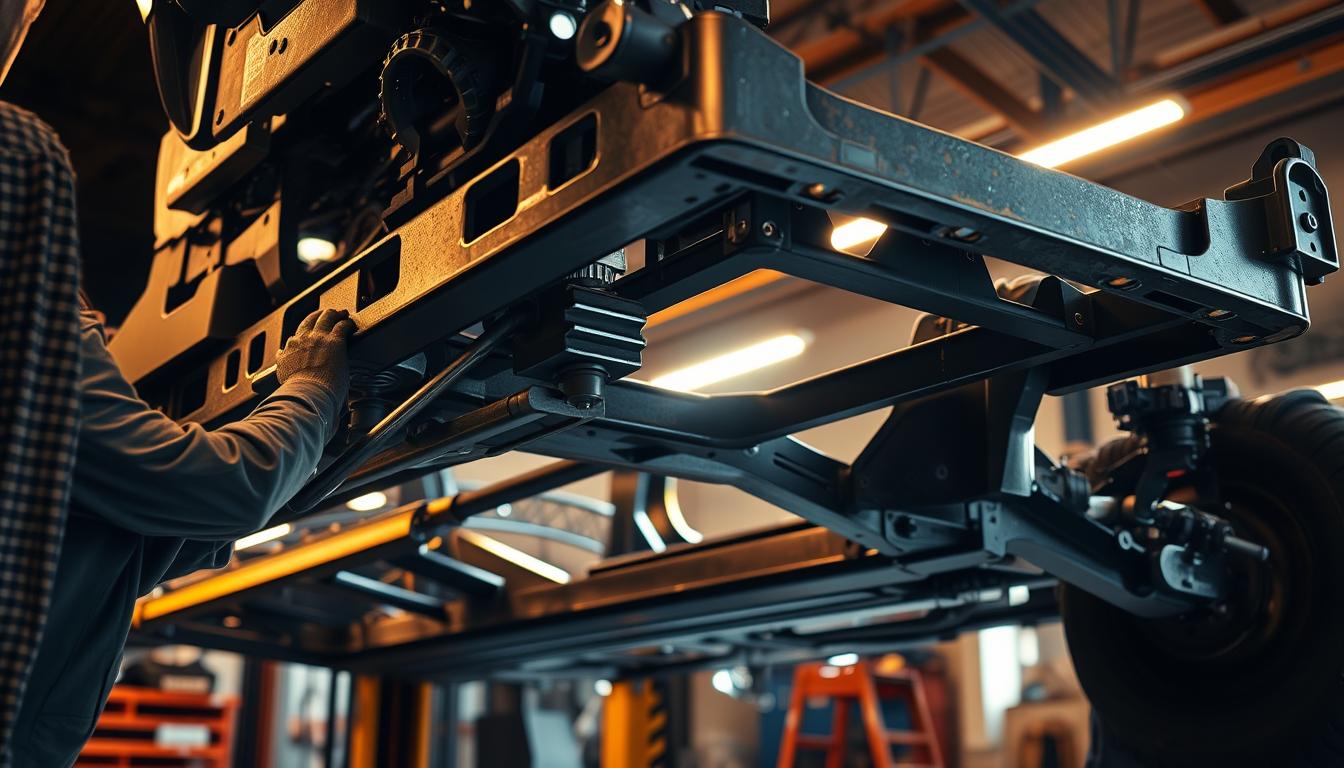
How Frame Straightening Restores Vehicle Safety After a Wreck
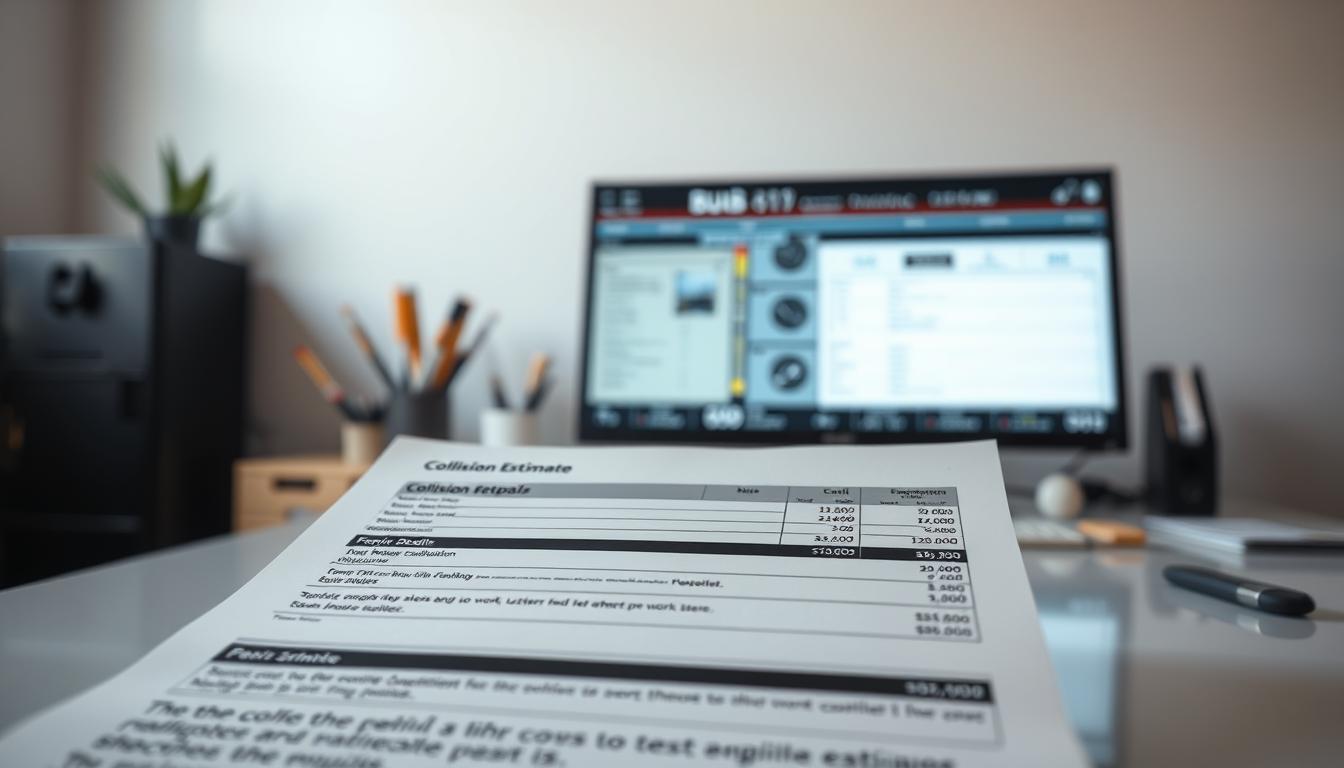
How to Understand Your Collision Repair Estimate
When it comes to vehicle repair, achieving a seamless color match is crucial. At Miracle Body and Paint Collision Center, we understand the importance of blending in automotive body work. This technique involves applying paint to adjacent areas, creating a smooth transition between the repaired and original surfaces.
The goal of paint blending is to prevent color differences and ensure an optimal integration between the part to be repaired and those adjacent to it. Even small variations in color can significantly impact your vehicle‘s appearance and resale value.
By employing professional paint blending services, we help preserve your car’s aesthetic integrity after collision damage or panel replacement. Our expertise ensures that the repair is virtually undetectable to the human eye.
Key Takeaways
- Paint blending is a critical technique in automotive repair for seamless color matching.
- It creates a smooth transition between new and existing paint, making repairs undetectable.
- Small color variations can significantly impact a vehicle’s appearance and resale value.
- Professional paint blending preserves a car’s aesthetic integrity after damage or replacement.
- Miracle Body and Paint Collision Center offers expert paint blending services for San Antonio vehicle owners.
Understanding Auto Paint Blending
Auto paint blending is a sophisticated technique used in the automotive repair industry to achieve seamless color transitions. This method is crucial for maintaining a vehicle’s original appearance after repairs.
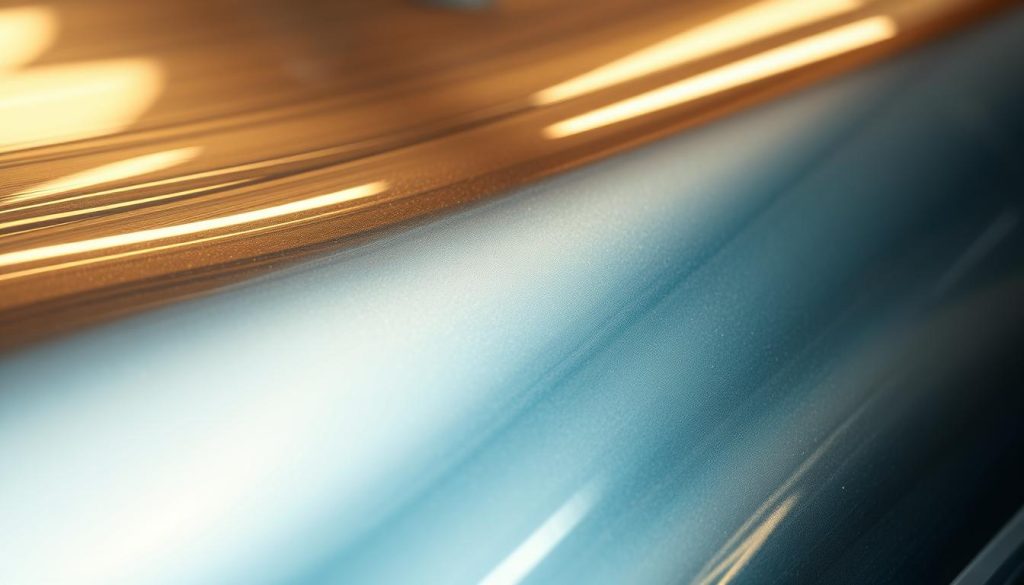
Definition and Purpose of Paint Blending
Auto paint blending refers to the technique of gradually transitioning between new and existing paint to create an invisible repair. This method differs significantly from complete panel repainting and is considered a specialized skill in the automotive repair industry. The primary purpose of blending is to overcome the challenges of achieving exact color matches due to factors like paint aging, sun exposure, and manufacturer variations.
By using paint blending, professionals can minimize color differences, obtaining optimum color matching, integration, and adjustment. This technique is particularly important when dealing with modern vehicles that have complex metallic, pearl, and tri-coat finishes.
Why Color Matching Is Challenging in Automotive Repairs
Color matching is challenging in automotive repairs because even factory-matched paint codes often don’t produce perfect matches with aged vehicle finishes. Environmental factors, application techniques, and paint formulations all contribute to the difficulty of achieving an exact match.
- Environmental factors such as sun exposure and weathering affect paint color over time.
- Application techniques can vary between different technicians and repair shops.
- Paint formulations change over time, making it difficult to match older paint.
Professional paint blending at specialized centers like Miracle Body and Paint Collision Center ensures that repairs remain undetectable while maintaining your vehicle’s value and appearance.
When Is Paint Blending Necessary for Your Vehicle?
Paint blending is a sophisticated technique used in automotive repairs to achieve a flawless finish. The need for paint blending arises in various situations, particularly when dealing with visible areas or specific paint finishes. Understanding when to apply this technique is crucial for a successful repair.
High Visibility Areas and Replacement Parts
Paint blending is often necessary for high visibility areas such as doors, hoods, and fenders, where any mismatch in color is immediately noticeable. Additionally, when replacement parts are installed, they typically require blending to match the surrounding paint perfectly. This ensures that the repair is undetectable, maintaining the vehicle’s original appearance.
Metallic and Pearl Finishes
Vehicles with metallic or pearl finishes present a unique challenge due to the orientation of particles in the paint, which can affect how the color is perceived. These finishes require specialized blending techniques to ensure a precise match, as the angle and position of panels can significantly impact the color’s appearance.
Factors That Affect Color Matching
Several factors can affect color matching, including environmental influences like sun exposure, acid rain, and pollution, which can cause variations in the vehicle’s paint over time. Moreover, the angle and position of panels can alter color perception, particularly with metallic finishes. Understanding these factors is key to determining when paint blending is necessary.
- High visibility areas of your vehicle, such as spoilers or doors, often require paint blending for undetectable repairs.
- Replacement parts, even when correctly color-coded, typically need blending to match the existing paint.
- Metallic and pearl finishes necessitate specialized blending due to particle orientation and light reflection.
Different Types of Auto Paint Blending Techniques
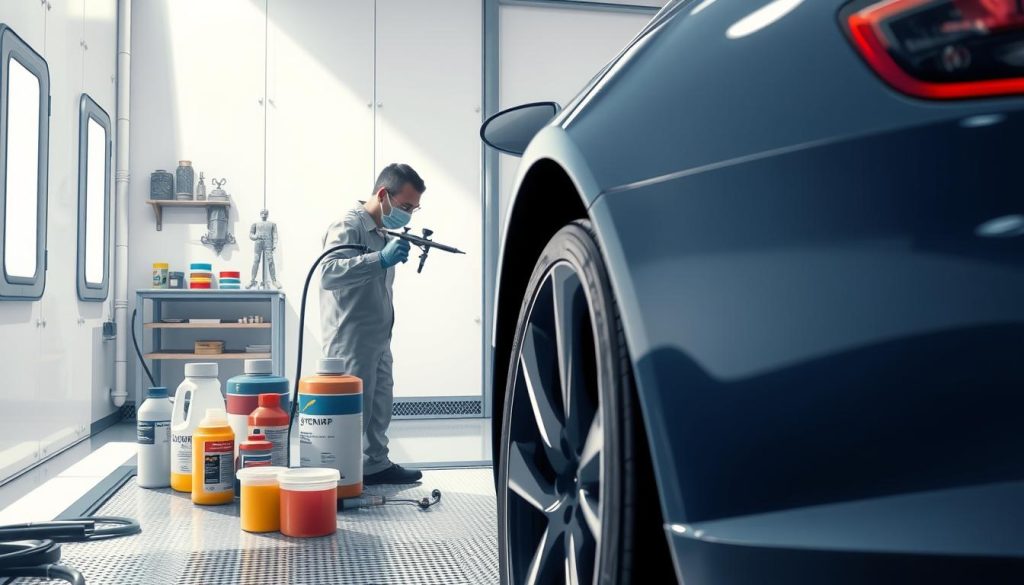
In the world of auto body repair, mastering various paint blending techniques is crucial for achieving flawless finishes. At Miracle Body and Paint Collision Center, we employ several methods to ensure that repairs are virtually invisible.
Blending on the Same Panel
Blending on the same panel is a technique used when the damage is limited to a single panel and doesn’t extend to its edges. This method involves creating a gradual transition from the repaired area to the existing paint, making the repair nearly invisible. It’s particularly effective for small to medium-sized damages on large, flat surfaces.
Blending on Adjacent Panels
When damage extends to the edges of a panel or involves the replacement of entire body parts, blending on adjacent panels becomes necessary. This technique requires careful execution to create seamless transitions across body lines and panel gaps. By doing so, we ensure that the repair blends in with the surrounding areas, maintaining the vehicle’s original appearance.
Clear Coat Blending
Clear coat blending is a specialized technique that focuses on blending the clear coat layer to achieve a uniform gloss and protection. This method not only enhances the appearance of the repair but also minimizes material usage. By carefully blending the clear coat, we can ensure a high-quality finish that matches the rest of the vehicle.
At Miracle Body and Paint Collision Center, we select the appropriate blending technique based on the damage location, paint type, and vehicle design. Our experienced technicians are skilled in all three primary paint blending techniques, ensuring that every repair meets the highest standards of quality and appearance.
The Step-by-Step Paint Blending Process
Achieving a flawless finish through paint blending involves several precise steps. The process begins with thorough surface preparation, followed by careful application of the base coat and blending, and finally, the application of a clear coat to seal and protect the repair.
Proper Surface Preparation
Before embarking on the blending process, proper surface preparation is critical. We start by cleaning the target area thoroughly to remove any dirt or debris that could interfere with the painting process. The repair area is then sanded with fine-grit sandpaper (between 1000 and 1500 grit) to provide a smooth surface for the new paint to adhere to. After sanding, another cleaning round is necessary to remove dust or particles, using a grease and wax remover for this stage. We then mask off the area around the repair spot to protect it from overspray. Finally, a primer is applied to the repair area, which helps the new paint adhere better and last longer.
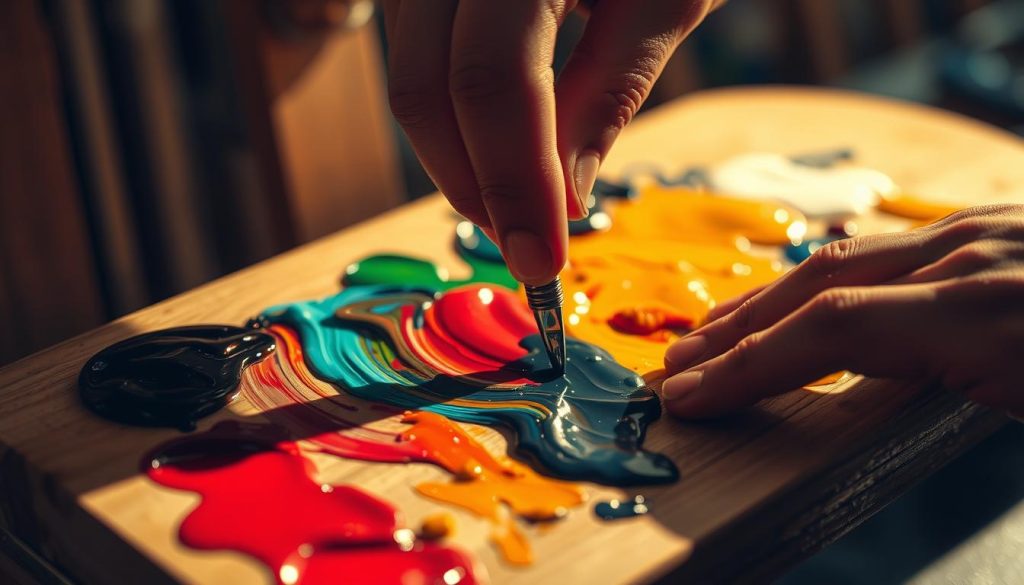
Base Coat Application and Blending
The next step involves the base coat application and blending. We apply paint in gradually thinning layers to create an invisible transition zone. For metallic and pearl paints, specialized techniques are used, including control of spray gun distance, pressure, and pattern to ensure proper particle orientation. The amount of paint applied is carefully controlled to achieve a seamless blend. The goal is to coat the entire panel evenly, ensuring that the repair is not visible.
Clear Coat Application and Finishing
The final step is the clear coat application and finishing. The clear coat is carefully blended beyond the base coat area to seal and protect the repair while maintaining consistent gloss. We ensure that the clear coat is applied evenly, with the right amount of coats to achieve the desired finish. After the clear coat is cured, the area is subjected to color sanding and polishing to ensure the blended area perfectly matches the surrounding surfaces.
By following these precise steps, we can achieve a flawless finish that is virtually indistinguishable from the original paintwork. At Miracle Body and Paint Collision Center, our technicians are trained to follow this meticulous process to deliver high-quality, blended repairs.
Conclusion: Professional Paint Blending for Flawless Results
Achieving a flawless finish in automotive repairs requires more than just a fresh coat of paint; it demands the art of professional paint blending. This technique is crucial for maintaining your vehicle’s appearance and value, especially when dealing with metallic, pearl, or tri-coat finishes.
The challenges of color matching in automotive repairs cannot be overstated. However, with the right blending techniques, professionals can overcome these obstacles, ensuring a seamless repair that is virtually invisible.
At Miracle Body and Paint Collision Center, our technicians have mastered the art and science of paint blending. We understand that improper blending can lead to visible repair lines and color mismatches, diminishing your vehicle’s appearance. That’s why we use specialized equipment and techniques to deliver flawless results.
Our expertise extends to all vehicle makes and models. If you’re dealing with collision damage, don’t settle for amateur repairs. Contact us at either of our San Antonio locations: North West San Antonio – Leon Valley at (210) 680-1987 or visit us at 6217 Grissom Rd., San Antonio, TX 78238. Let us restore your vehicle to its original glory with our professional paint blending and collision repair services.

